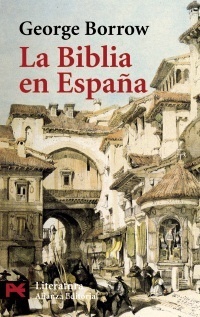What do you think?
Rate this book


640 pages, Paperback
First published January 1, 1843
Those who wish to make themselves understood by a foreigner in his own language, should speak with much noise and vociferation, opening their mouths wide.
"We booksellers of Spain," said he, “"re all Liberals, we are no friends to the monkish system How, indeed, should we be friends to it? It fosters darkness, whilst we live by disseminating light We love our profession, and have all more or less suffered for it, many of us, in the times of terror, were hanged for selling an innocent translation from the French or English. Shortly after the Constitution was put down by Angoulême and the French bayonets, I was obliged to flee from St James, and take refuge in the wildest part of Galicia, near Corcuvion. Had I not possessed good friends, I should not have been alive now, as it was, it cost me a consider able sum of money to arrange matters Whilst I was away, my shop was in charge of the ecclesiastical officers They frequently told my wife that I ought to be burnt for the books which I had sold Thanks be to God, those times are past, and I hope they will never return."